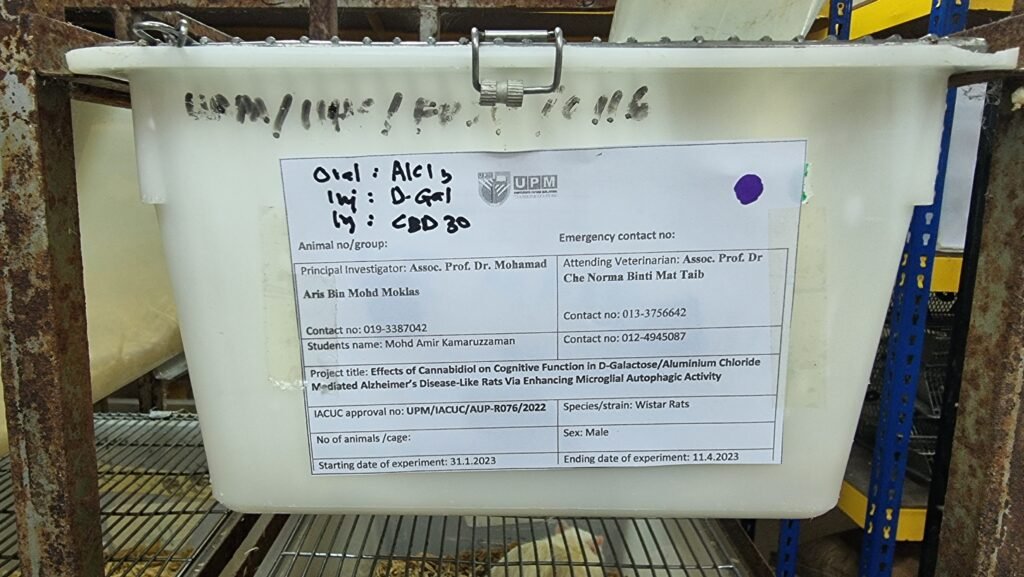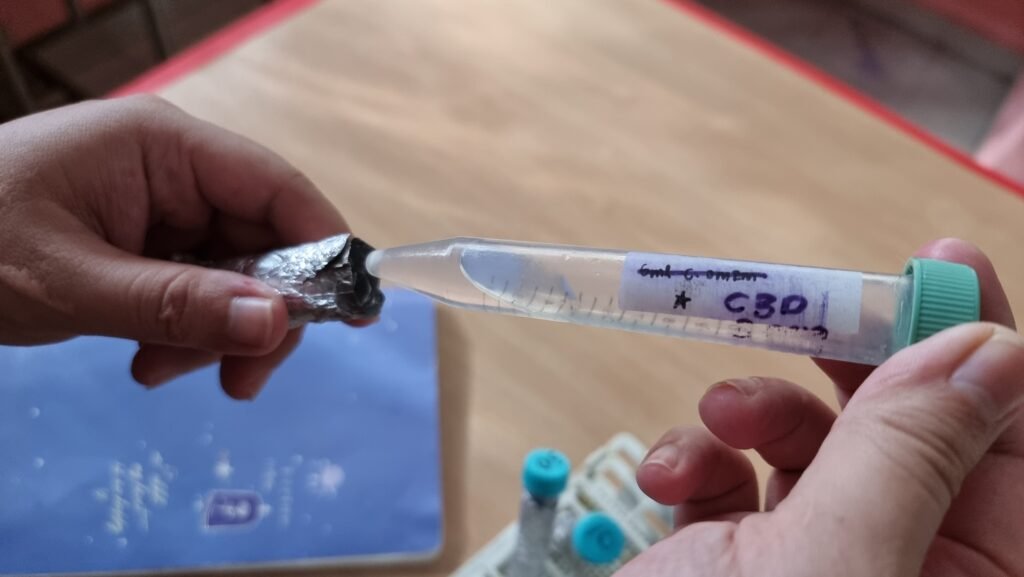
Researcher Dr Mohd Amir Bin Kamaruzzaman (Dr Amir) began treating lab rats at University Putra Malaysia (UPM) earlier this year to study how the cannabis compound Cannabidiol (CBD) can effectively treat Alzheimer’s disease.
The lab rats used in the study are divided into six groups which include a baseline controlled group (treated only with water) and groups that are given neurotoxin Aluminum Chloride to induce Alzheimer’s Disease (AD) while being concurrently treated. Each group has five (5) rats and is separated by color as below:
| GROUP | NEUROTOXIN (ORAL) | BRAIN SUGAR (INJECTION) | TREATMENT (INJECTION) |
| BROWN (BASELINE) | WATER | WATER | WATER |
| RED (NEGATIVE CONTROL) | ALUMINUM CHLORIDE | D-GALACTOSE | NO TREATMENT |
| GREEN (POSITIVE CONTROL) | ALUMINUM CHLORIDE | D-GALACTOSE | DONEPEZIL (10MG/KG) by ORAL |
| YELLOW | ALUMINUM CHLORIDE | D-GALACTOSE | CANNABIDIOL (CBD) 3MG |
| BLUE | ALUMINUM CHLORIDE | D-GALACTOSE | CANNABIDIOL (CBD) 10MG |
| PURPLE | ALUMINUM CHLORIDE | D-GALACTOSE | CANNABIDIOL (CBD) 30MG |

D-galactose and the selected treatment is injected intraperitoneal to the abdomen of each lab rat at a 45 degree angle. Administering the neurotoxin and treatment at the same time is the chronic induction method which allows the study to show results on how Cannabidiol (CBD) could be a neuroprotective substance. This is useful as in the real world, humans who have the potential or risk of developing Alzheimer’s disease do not usually show any symptoms. Therefore, CBD could act as a supplement to prevent any symptoms and possibly stop the disease. Therapeutic studies which treat symptoms is not an admired approach to Dr Amir as he believes that prevention is better than cure.


After nine weeks of continuous induction and treatment, the cognitive functions of each lab rat will be tested in a pool of water. Each lab rat will be trained to swim and find the platform placed in the middle of the pool. Once each rat is familiar with swimming (usually up to four times trial), it will be pushed off the platform and into the pool of water. Dr Amir will then observe if the rat finds the platform easily or struggle to locate it. If the treatment is affective, the lab rats treated with Donepezil (existing Alzheimer’s disease medication) and CBD should be able to locate the platform much quicker than the Red (negative control) group. The cognitive test is scheduled for early April and will be video documented for the next article on MASA website.
Research like this is one of the many completed under the supervision of Prof Dr Aris Moklas at UPM. There are many more studies planned to be completed at UPM using Delta-9-tetrahydrocannabinol (THC) and CBD with the intention to start human clinical trials. Although results from the studies conducted at UPM confirms the safety and effectiveness of cannabis to be used as a mental health treatment and supplement, human trials will eventually help us understand the impact of cannabis on psychology.

